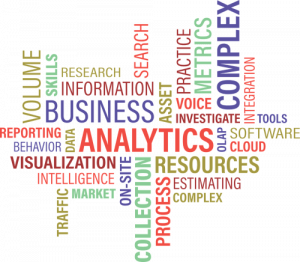Business analytics is crucial for every business as it converts raw data into actionable insights, helping companies make informed decisions. By analyzing patterns and trends, businesses can improve operational efficiency, enhance customer experiences, and identify new growth opportunities. It enables better decision-making, risk management, and strategic planning, giving companies a competitive edge. In today’s data-driven world, business analytics is essential for maximizing profitability, optimizing performance, and staying ahead in a rapidly evolving marketplace.

Introduction to Business Analytics
Business analytics is a data-driven approach that involves analyzing and evaluating data to make informed business decisions. By using techniques like statistical analysis, predictive modelling, and data visualization, businesses can uncover trends, improve operational efficiency, enhance customer experiences, and drive strategic growth. In today’s competitive landscape, leveraging data effectively is crucial for identifying market opportunities, reducing risks, and optimizing performance.
Business analytics spans across various functions, including marketing, finance, supply chain management, and human resources, making it an important tool for companies of all sizes and industries. With the budding importance of data, professionals skilled in analytics are in high demand.
Enrolling in a business analytics course provides individuals with the necessary skills to harness the power of data. These courses cover essential concepts such as data mining, forecasting, and machine learning, preparing learners to apply data-driven strategies in real-world business scenarios and excel in the dynamic field of business analytics.
How Business Analysis Enhances Your Business?
Business analysis enhances your business by providing a structured approach to identifying and solving problems, improving processes, and optimizing resources. By evaluating data, business analysis helps companies understand market trends, customer behaviour, and operational inefficiencies, enabling them to make informed decisions. This leads the way towards better strategic planning, reduced risks, and improved resource allocation.
Business analysis also plays a highly significant role in driving innovation by identifying opportunities for growth, streamlining operations, and improving product or service offerings. It ensures that businesses can adapt to market changes and stay competitive. Additionally, by analyzing business needs and aligning them with technology and organizational goals, business analysis supports digital transformation initiatives.
In essence, business analysis empowers companies to make smarter decisions, reduce costs, increase productivity, and deliver more value to customers, contributing to long-term success and sustainability in an ever-evolving marketplace.
Why is Analytics the Key to Success in Business?
Analytics is the key to success in business for several reasons:
Data-Driven Decisions: Analytics helps businesses make informed, data-backed decisions, reducing guesswork and improving accuracy in planning and strategy.
Improved Efficiency: By analyzing operations, businesses can identify bottlenecks, optimize processes, and enhance productivity, leading to better resource utilization.
Enhanced Customer Insights: Analytics allows companies to understand customer preferences and behaviour, enabling personalized marketing and improved customer experiences.
Predictive Insights: Predictive analytics can predict the latest trends and user behaviour, helping businesses stay ahead of the competition and anticipate market changes.
Risk Management: Analytics identifies potential risks and areas of improvement, allowing businesses to mitigate issues before they escalate.
Cost Reduction: By analyzing financial data, businesses can optimize costs, streamline operations, and increase profitability.
Innovation and Growth: Analytics identifies new market opportunities and trends, enabling businesses to innovate and grow.
Analytics is essential for driving success and sustaining long-term business growth.
Future and Scope of Business Analytics
The future of business analytics is bright, as companies depend heavily on data to make strategic decisions and optimize performance. With the growth of big data, artificial intelligence, and machine learning, business analytics is expected to play an even larger role in areas like predictive analytics, automation, and real-time decision-making. Industries such as finance, healthcare, and retail will continue to leverage analytics to gain insights, drive innovation, and improve customer experiences.
The demand for skilled professionals in this field is growing, making it a highly sought-after career. Pursuing a business analytics certificate course equips individuals with the skills to analyze data effectively, use analytical tools, and apply data-driven strategies. This certification helps professionals stay competitive and excel in the evolving landscape of business analytics.
Conclusion
In conclusion, business analytics is vital for every business as it enables data-driven decision-making, improves efficiency, and helps identify growth opportunities. By analyzing trends, customer behaviour, and operational performance, companies can make informed strategic choices that reduce risks and optimize resources. Analytics also enhances customer experiences through personalized approaches and drives innovation by uncovering market trends. In today’s competitive and data-rich environment, leveraging business analytics is essential for staying ahead, making smarter decisions, and ensuring long-term success. Businesses that invest in analytics are better positioned to accumulate, grow, and thrive in an ever-changing marketplace.